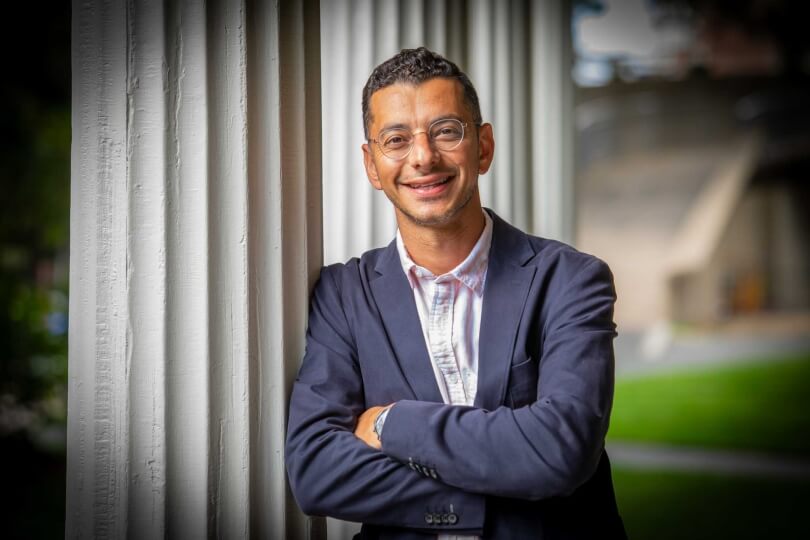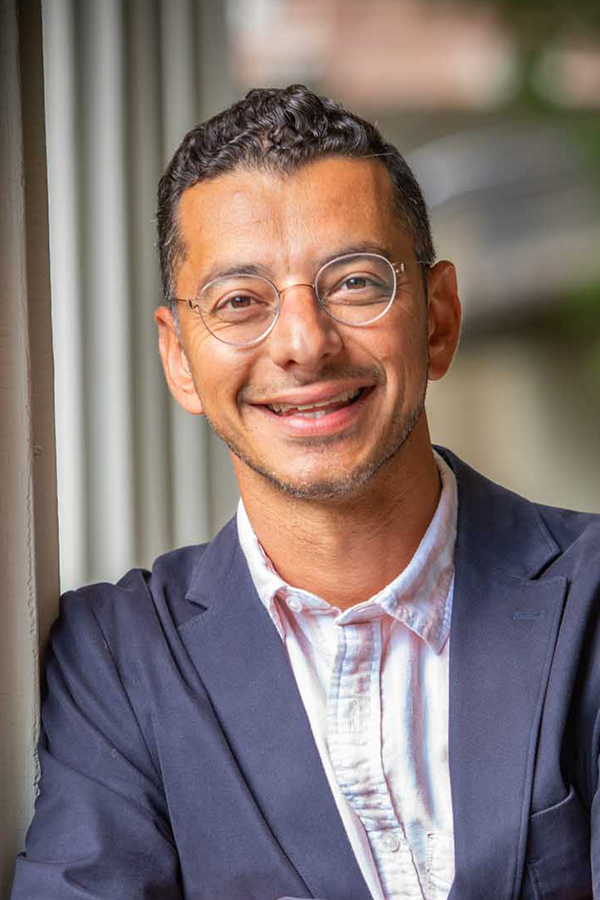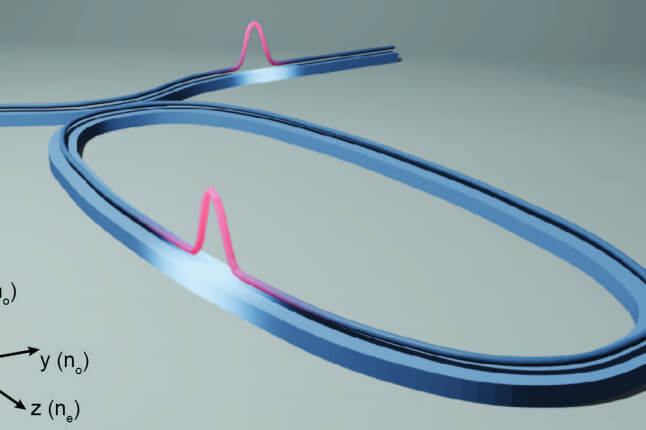News
Mo Khalil is the Hok Lam and Kathleen Kam Wong Professor of Bioengineering and Professor of Molecular and Cellular Biology at the Harvard John A. Paulson School of Engineering and Applied Sciences (SEAS). Prof. Khalil joined SEAS in 2025 from Boston University, where he was an Associate Professor in the Department of Biomedical Engineering. We spoke to him about his research, which focuses on synthetic biology; systems biology; genetic and epigenetic regulation; microbial ecology and evolution; and technology development and automation. The interview has been edited for clarity and length.
Q: What connects the different projects underway in your lab?
A: We’re excited about a lot of seemingly different things in my lab, but there’s a common thread: developing and installing genetic circuits into cells and organisms to help us better understand biology — and ultimately, to reprogram it. These synthetic circuits allow us to precisely control biological functions and apply that understanding to some of society’s biggest challenges.
Our agricultural system is under mounting pressure from climate change and a growing global population. Many of us believe that innovation in plant engineering will be a critical part of the solution.
Unfortunately, plant genomes are difficult to modify, and even more challenging, we don’t always know which genetic variations will lead to more resilient or productive crops. My lab is developing new genome engineering and synthetic biology tools to make plant engineering easier, faster, and more reliable. The goal is to accelerate discovery so we can design better crops that can thrive in a changing world.
Q: You’re also applying synthetic biology to human health. Can you tell us more about that?
A: Yes — we’re particularly interested in programming precision control over cell therapies, such as CAR-T cells. These therapies represent a revolutionary new paradigm in medicine: a patient’s own immune cells are genetically modified and redirected to fight cancer.
CAR-T therapy has already cured previously incurable cancers, but its broader use has been limited by several biological and clinical challenges. We think that by introducing synthetic genetic circuits into immune cells, we can overcome those challenges, making CAR-T therapies safer, more adaptable, and effective against a wider range of cancers—and possibly other diseases as well.
We’re [also] exploring how to transform yeast cells into tiny discovery factories. Yeast—famous for its role in beer, bread, and wine—can be reprogrammed to help us discover and evolve new molecules, such as antibodies that target previously inaccessible biological pathways.
By harnessing yeast in this way, we can potentially unlock new therapies for cancer, cardiovascular disease, and other disorders. It’s an exciting direction that combines evolution, computation, and molecular engineering to expand what’s possible in drug discovery.
Q: What drives your lab’s approach to synthetic biology?
A: At its core, our work is about building tools that make biology easier to engineer. Whether we’re reprogramming plants to withstand climate stress, refining immune cells to fight cancer, or turning yeast into molecular discovery engines, we’re guided by the belief that understanding and redesigning biological systems can lead to profound improvements in human and environmental health.
Topics: Bioengineering, Climate, Health / Medicine, Meet Our Faculty, Research
Cutting-edge science delivered direct to your inbox.
Join the Harvard SEAS mailing list.
Scientist Profiles
Ahmad (Mo) Khalil
Hok Lam and Kathleen Kam Wong Professor of Bioengineering and Professor of Molecular and Cellular Biology




